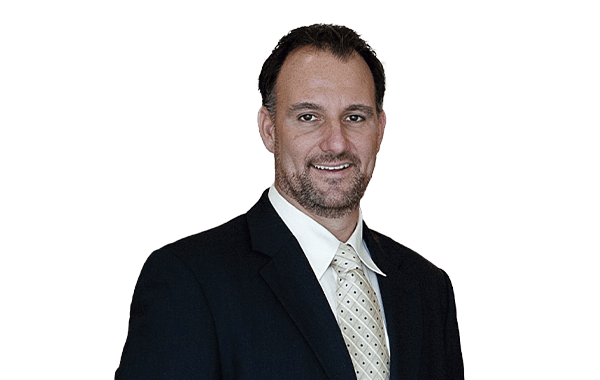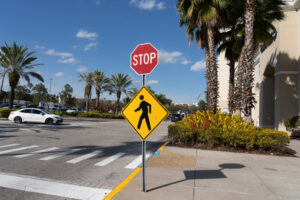
How PIP Insurance Works with Other Types of Coverage in Florida
When you’re involved in a car accident in Florida, your first source of insurance coverage is typically Personal Injury Protection (PIP). Florida is a no-fault state, which means that regardless of who caused the crash, your PIP insurance covers your medical expenses and a portion of lost wages. However, PIP does not cover everything, and that’s where other types of insurance—such as health insurance, bodily injury liability, and uninsured motorist coverage—come into play. Understanding how PIP interacts with these policies is essential for maximizing your benefits and avoiding unexpected medical bills.
Navigating the complexities of insurance coverage after an accident can be overwhelming. Insurance companies often limit payouts and shift responsibility whenever possible. That’s why working with an experienced attorney can make a significant difference in how your claim is handled. We can help you understand how different policies work together and ensure you receive the full amount you’re entitled to under Florida law.
What PIP Covers and Its Limitations
PIP insurance is required for all drivers in Florida and provides coverage regardless of fault. However, it comes with specific limitations that may leave you with out-of-pocket expenses.
Florida’s PIP insurance covers 80% of reasonable and necessary medical expenses up to a maximum of $10,000. This includes hospital visits, doctor appointments, rehabilitation services, and even mileage to and from medical treatments. However, if an injury is not classified as an “emergency medical condition” (EMC), the coverage may be limited to just $2,500. Additionally, PIP only covers 60% of lost wages, meaning if you are unable to work, you may not receive full compensation for your lost income.
One of the most significant limitations of PIP is it does not cover pain and suffering or other non-economic damages. This means if you experience long-term consequences from your injuries, such as chronic pain or emotional distress, PIP will not compensate you. If your damages exceed what PIP covers, you may need to rely on additional insurance policies or pursue legal action against the at-fault party.
How Health Insurance Works with PIP
Your health insurance can play a role in covering medical expenses that exceed your PIP limits, but it’s important to understand how the two interact.
In Florida, PIP insurance is primary, meaning it pays first before your health insurance is billed. If your medical expenses surpass the $10,000 PIP limit, your health insurance may cover the remaining costs, depending on your policy terms. However, many health insurance plans require you to meet a deductible before coverage begins, which could leave you with additional out-of-pocket expenses.
Additionally, some health insurance providers may refuse to cover injuries from car accidents unless you have exhausted all other available sources, including MedPay or an at-fault driver’s liability coverage. This means if you don’t have additional coverage beyond PIP, you could be responsible for certain medical bills even if you have health insurance. Coordination between PIP and health insurance can be complicated, making it crucial to fully understand your policy and rights.
The Role of Bodily Injury Liability and Uninsured Motorist Coverage
PIP insurance does not cover injuries to other drivers, which is why bodily injury liability (BIL) insurance and uninsured/underinsured motorist (UM/UIM) coverage are critical.
BIL insurance is not required in Florida for most drivers, but it provides financial protection if you cause an accident that injures another person. If you are hurt in a crash caused by someone else, you may be able to file a claim against their BIL policy for additional compensation, including pain and suffering, medical bills beyond PIP limits, and lost wages.
If the at-fault driver does not have BIL coverage or carries insufficient limits, UM/UIM coverage can help fill the gap. Uninsured motorist coverage allows you to seek compensation from your own policy if the at-fault driver lacks proper insurance. This is particularly important in Florida, where many drivers are either uninsured or underinsured. Without UM coverage, you may struggle to recover damages beyond what PIP provides.
Why Legal Guidance is Crucial in Insurance Claims
Dealing with multiple insurance policies after an accident can be complex, especially when insurers deny or minimize claims.
Insurance companies often attempt to shift responsibility to other policies, leaving you caught between your PIP provider, health insurance, and any third-party liability claims. In some cases, you may face delays or denials due to disputes over coverage limits or whether an injury qualifies as an emergency medical condition. Having an attorney review your claim can help ensure you receive every dollar of coverage available to you.
If you are pursuing additional compensation from an at-fault driver’s liability insurance, negotiating a fair settlement can be difficult. Insurers may try to minimize your claim by arguing that your injuries are not severe or that you had pre-existing conditions. An attorney can push back against these tactics and fight for the compensation you deserve.
Need Help Understanding Insurance Coverage After an Accident? Contact The Law Offices of Scott Sobol
Understanding how different insurance policies work together after a car accident can be confusing, but you don’t have to navigate this process alone. We have extensive experience handling personal injury cases in Florida and know how to maximize the insurance benefits available to you. Whether you need help coordinating PIP and health insurance or pursuing compensation from an at-fault driver, we are here to protect your rights.
If you’ve been injured in an accident, don’t let insurance companies take advantage of you. Contact us today for a free consultation at (954) 440-2000 or through our contact form.
Recent Posts
A police report is an essential piece of evidence in your Florida car accident claim, providing an official record of the incident t ...
Car accidents become significantly more complex when children are involved as passengers. The presence of a minor in your vehicle du ...
Most people assume that when a pedestrian gets struck by a vehicle, the driver automatically bears full responsibility for the accid ...





